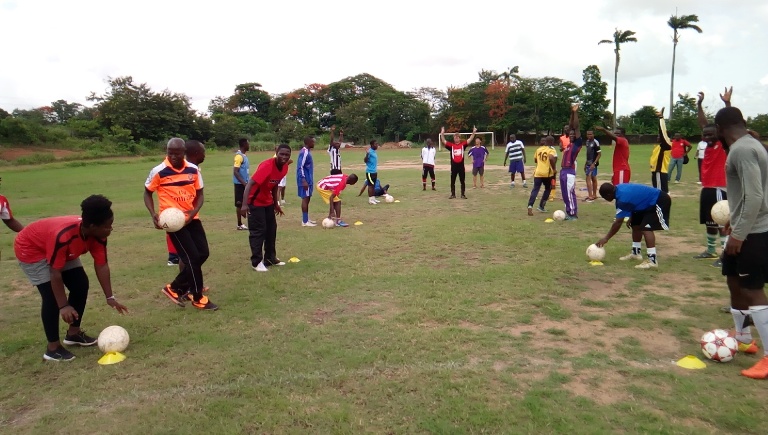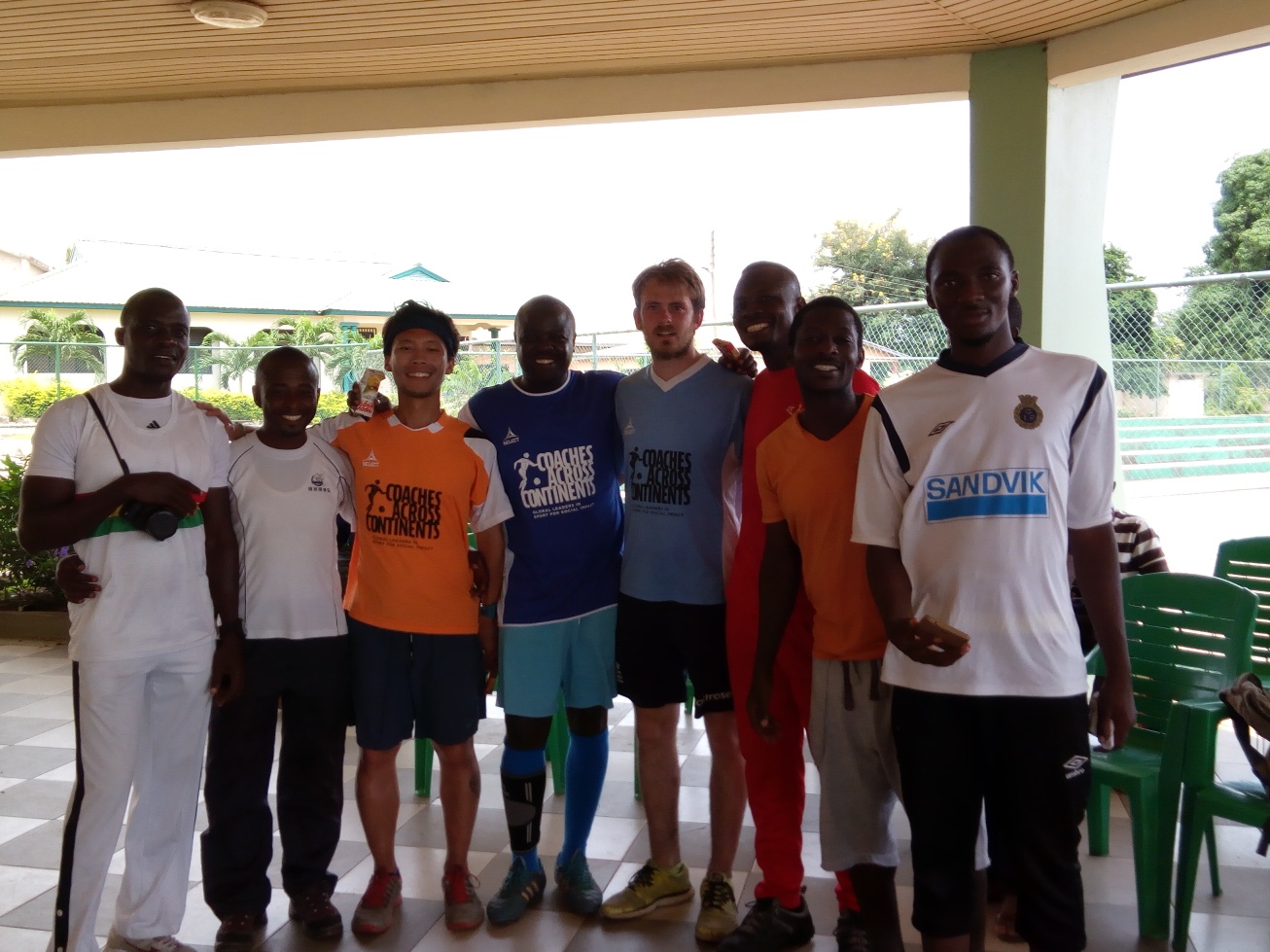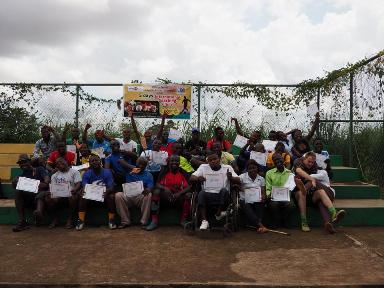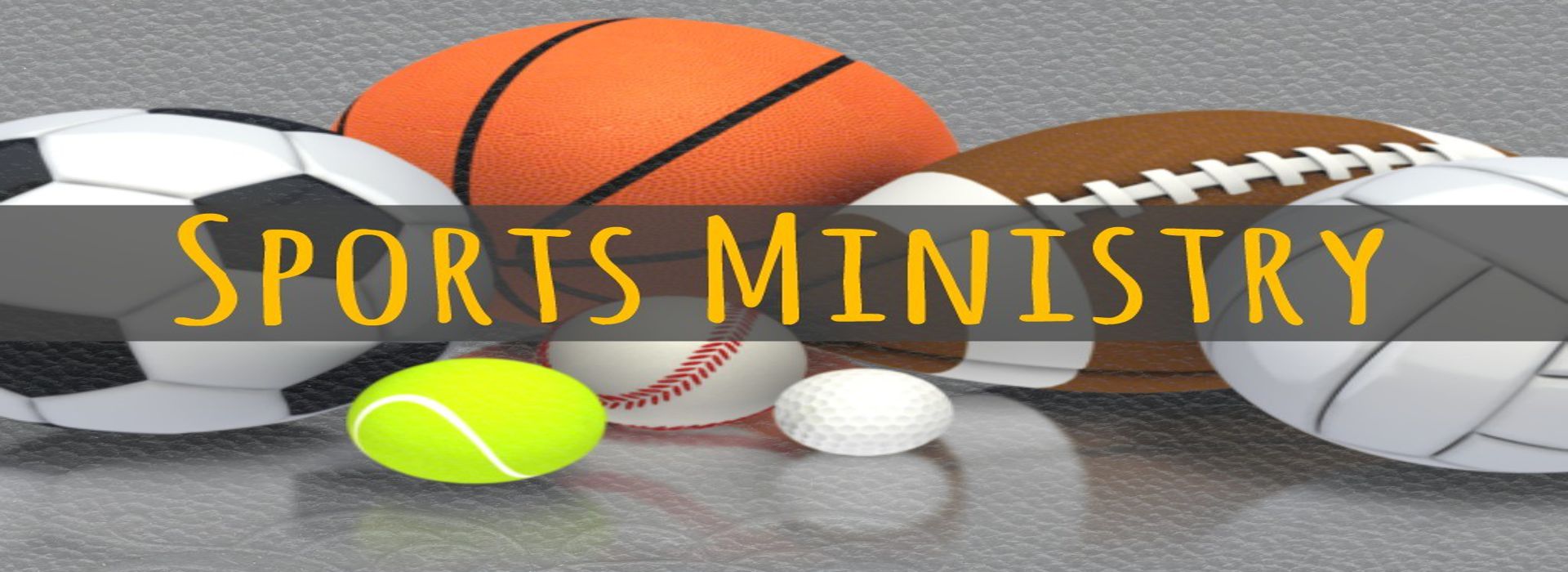Training workshop for Community Coaches in sports evangelism:
CAC Global Citizen JK Cho writes about working with Rescue Sports Foundation in Kumasi, Ghana.
Growing up obsessed with superhero comics, one of my favorite characters was “Mimic” from the X-Men who possessed the power of learning other superheroes’ powers instantly. I was fascinated by the limitlessness and versatility of Mimic to any problematic situations. Self-Directed Learning is not exactly about copying somebody’s ability quickly but is similar to Mimic’s ability in that it’s not limited to a single skill, but it’s a skill of learning to cope with the constantly changing environment. A Self-Directed Learner can resist the bias against doing new things, continuously scan the horizon for solutions and opportunities, and push oneself to acquire radically different capabilities.

CAC believes installing a Self-Directed Learning mind is the most effective and sustainable way to bring social change rather than teaching a single life-skill to a student or bringing a limited amount of resources to a developing community. CAC strategically teams up with local charities that maintain networks with local teachers and community leaders. CAC trains them how to help their own students become Self-Directed Learners. The training is mostly of using games of football. CAC uses football as a teaching vehicle because it’s universally transportable to any culture and also because it’s fun. When something is fun, people open their mind and ready to soak it all in. Thus, children play games of football and organically become Self-Directed Learners. I have faith in the cause and how CAC is doing it and decided to join the Global Citizen volunteer program to Ghana, Malawi, and Kenya during the summer.
The team Ghana consists of me as a Global Citizen and the two other veteran coaches: Jordan from U.K. and Oti from Kenya. We met on Saturday in Accra, the capital of Ghana and left for our first destination, Kumasi. Kumasi means the Garden City. When Ghana was colonized by Great Britain (1867 – 1957), Queen Elizabeth visited Kumasi and named so because of its many beautiful species of flowers and plants. When we arrived in the town, our charity partner, Rescue Sports, warmly welcomed us and provided a great accommodation. The training venue was a very notable private senior high school called Prempeh College. We could not ask more in terms of the training equipment that they arranged and their respect towards the coaches. We spent Sunday making a game plan for the week and getting familiar with the neighborhood where we stayed. We immediately discovered that there were so many churches around, and it is an extremely important attribute in their lives. We anticipated that we would have to be careful and work around the strong religious lifestyle to bring social change to the community without serious adverse reaction.

My very first social impact coaching session began on the next day with 23 participants. Among them, three were disabled teachers. Going into the coaching session, we were expecting 60 participants to show up. However, during the week there was another social event for the same demographics, which inevitably split the potential participants. On the field, my first impression was that the participants were very shy although they could hardly hide their feelings of friendliness and curiosity. The weather was brutally hot and humid, and it took not that long to roast my skin and spirit that were not used to the African sun and heat. I thought California had a strong sun. Following the lead by coach Jordan and Oti, I was able to manage to complete the first day of social impact coaching. Although coaching is not my expertise, social responsibility and change management are something that I had been passionate and knowledgeable about. I gave my best to support my team and facilitate the training session.

As we proceeded with demonstrations of different games of addressing social issues such gender equity, child labor, conflict prevention, and health and wellness, the participants became more active and confident gradually. I could see in their faces joy and excitement coming from the enlightenment towards a new way of “learning to learn” effectively and sustainably. Each day after coaching session, we visited the participants’ schools and monitored/evaluated how they transferred to their children the knowledge that they gained from us. It was amazing seeing the chains of social impact through the CAC’s impact model. We estimated total 2292 children (608 girls/ 1684 boys) in Kumasi would benefit from our coaching session. On the final day, the participants were asked to create their own games and demonstrate them in front of the coaches and other participants. I was surprised how well the participants understood the purpose and dynamics of the curriculum and how creative they designed their games. It was my aha moment – “yes, this thing is working!”.
It was bitter-sweet on Saturday when we left Kumasi. For the 7 days in Kumasi, we built an incredible friendship with the participants and Rescue Sports and suffered from endless diarrhea caused by trying many different exotic foods. I wanted to stay longer in the beautiful Garden City, but we had to move on to the next location to discuss Self-Directed Learning. Above all, I was happy that the first-week coaching went successful and excited to do better as a coach in the following week. Additionally, as an MBA graduate, I was thinking in the bus to the next location what I could do to make this impact even bigger and how I could contribute to making U.S. corporations involved in this meaningful work.
Reports by JK Cho
